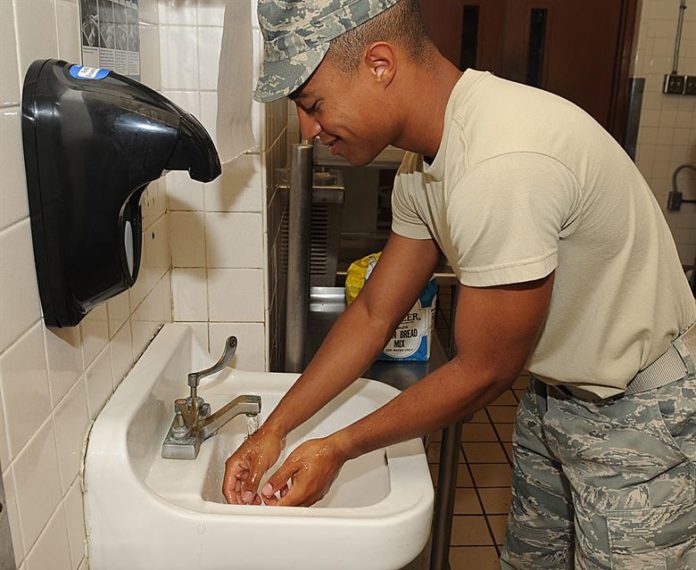Study shows that in a hospital, a hand dryer is likely to spread many more germs than a paper towel
And you thought it was the contact that spread germs! New research shows that jet-air hand dryers in hospital toilets installed exactly on that principle of avoiding contact, actually spread more germs than disposable paper towels.
Writing in the Journal of Hospital Infection, researchers from the University of Leeds argue that the official guidance about how to prevent bacterial contamination in hospital buildings needs to be strengthened. Guidelines for hospitals say that air dryers can be placed in toilets in the public areas of a hospital but not in clinical areas: not because of the risks they pose for cross contamination but because they are noisy.
Mark Wilcox, Professor of Medical Microbiology at the University of Leeds who supervised the international study, said the guidance needs to focus on the infection risks given the new evidence. The new study looked at bacterial spread in a real world setting – in two toilets in each of three hospitals, which were in the UK, France and Italy. Each of the toilets had paper towel dispensers and jet-air dryers, but only one of these was in use on any given day.
Professor Wilcox said: “The problem starts because some people do not wash their hands properly. When people use a jet-air dryer, the microbes get blown off and spread around the toilet room. In effect, the dryer creates an aerosol that contaminates the toilet room, including the dryer itself and potentially the sinks, floor and other surfaces, depending on the dryer design and where it is sited. If people touch those surfaces, they risk becoming contaminated by bacteria or viruses.”
“Jet-air dryers often rely on no-touch technology to initiate hand drying. However, paper towels absorb the water and microbes left on the hands and if they are disposed of properly, there is less potential for cross-contamination.”
He added: “Jet-air dryers often rely on no-touch technology to initiate hand drying. However, paper towels absorb the water and microbes left on the hands and if they are disposed of properly, there is less potential for cross-contamination.”
The study, led by researchers from the University of Leeds and Leeds Teaching Hospitals Trust, was the largest of its type to investigate whether the way people dry their hands has an impact on the spread of bacteria. This research follows a previous laboratory-based study led by the same team, which found that jet-air dryers were much worse than paper towels or traditional warm air hand dryers when it came to spreading germs.
The hospitals used in the study were the Leeds General Infirmary in Yorkshire, the hospital of Saint Antoine (Assistance Publique-Hôpitaux de Paris) in France, and the Hospital of Udine in Italy.
The main target bacteria were:
- Staphylococcus aureus: responsible for a range of conditions from minor skin and wound infections to life-threatening septicaemia.
- Enterococci: bacteria that can cause difficult-to-treat infections, including in immunocompromised patients.
- Enterobacteria: including Escherichia coli. These bacteria cause a wide range of infections, including gastroenteritis, pneumonia and septicaemia.
Across the three hospitals, bacterial counts were significantly higher in the toilets on the days that jet-air dryers were in use.
Professor Wilcox said: “We found multiple examples of greater bacterial contamination on surfaces, including by faecal and antibiotic-resistant bacteria, when jet-air dryers rather than paper towels were in use. Choice of hand drying method affects how likely microbes can spread, and so possibly the risk of infection.”
Frédéric Barbut, Professor of Microbiology at Saint Antoine (Assistance Publique-Hôpitaux de Paris), said: “The higher environmental contamination observed when using jet air-dryers compared with paper towels increases the risk for cross-contamination.”



What is a best methods to use such machines. I believe its working fine
Good explanation and fantastic guideline of hand dryer. A paper towel is perfect things for dry hand wash. A well paper towel removes the germ from your hand.